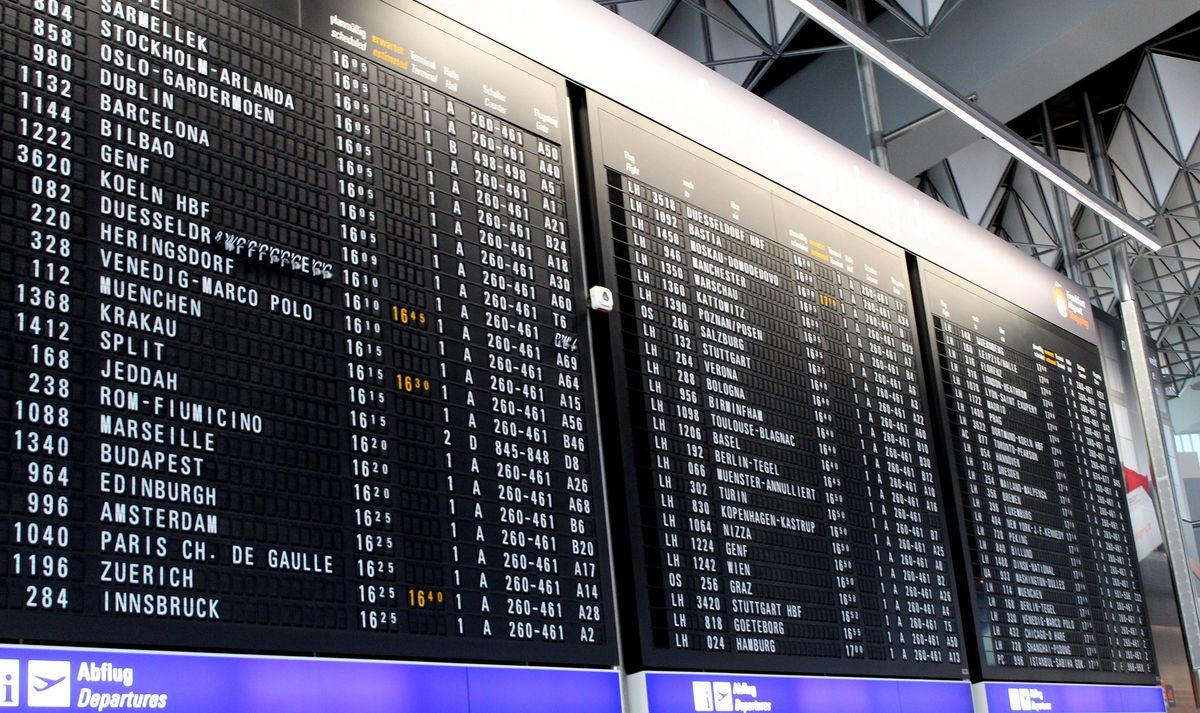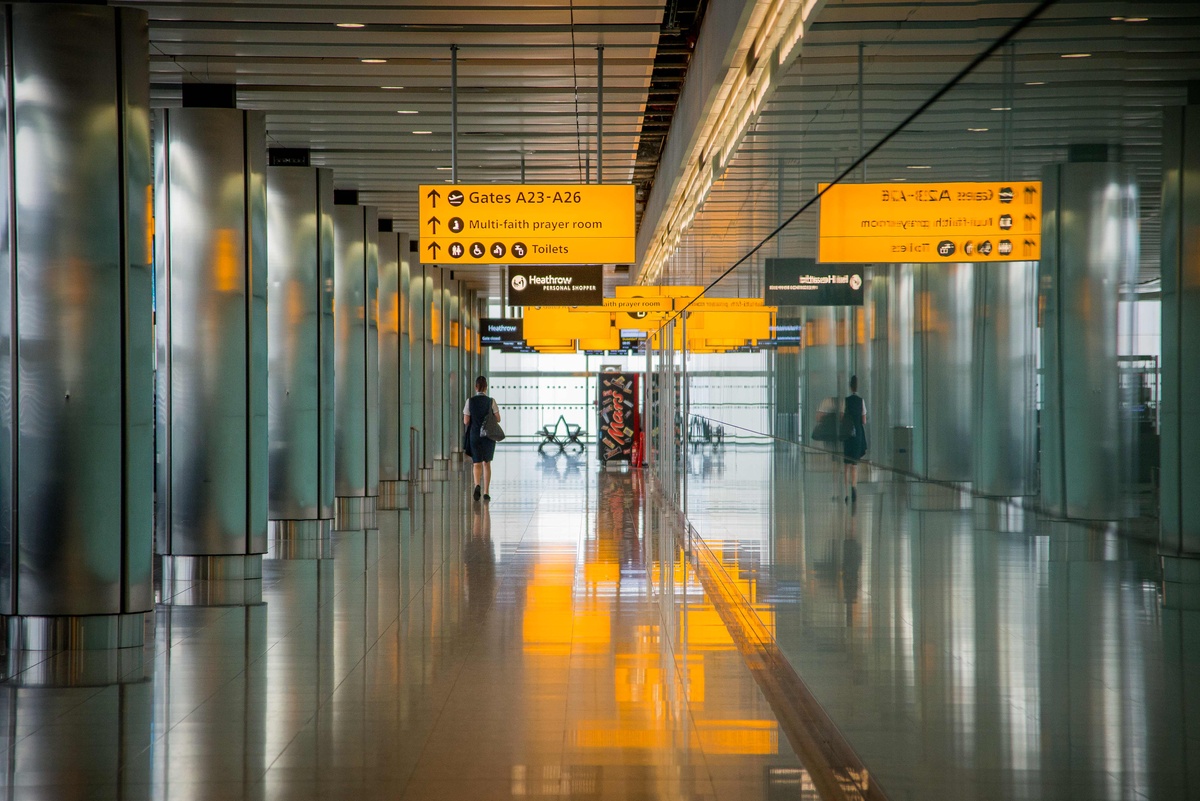
How to Find Flight Information and Where to Find Your Flight Number
Any journey can be complicated, but a trip involving air travel is even more so, and among the many details you must keep track of, your flight number, sometimes labelled as FLT NBR, is particularly important. This seemingly simple combination of letters and digits is your gateway to crucial flight information and a smoother travel experience. In this guide, we explore everything you need to know about these airline reference numbers, including how to find a flight number, how to check flight details and why they are so crucial for travellers, especially when facing flight cancellations, delays, luggage issues, or overbooking situations.
Understanding Flight or Airline Reference Numbers
Your FLT NBR serves as the backbone of the airline's operational and navigational systems, essential for both the airlines in scheduling and managing flights, and for passengers in organising their travel. This code comprises an airline's IATA code followed by a sequence of numbers that represent specific routes operated by the carrier. The IATA code, a unique two-character identifier for each airline, makes it easier to differentiate airlines in global operations. The numerical part often contains encoded information about the flight, such as geographical direction, the significance of the route, or even the time of day the flight operates. A flight reference number example is BA 067 (in this case, a British Airways flight from London to Philadelphia).
This structure isn't just for administrative convenience; it plays a vital role in the daily operations of air travel. For the airlines, it simplifies the task of scheduling flights across global networks, ensuring seamless coordination between different departments, from ground services to in-flight operations. For passengers, the flight number acts as a key to unlock detailed information about their journey, including departure and arrival times, gate assignments, and flight status updates. This level of detail is crucial, especially in situations of flight adjustments, providing a direct way to manage travel plans effectively.
Why Knowing Your Flight Number Matters
Understanding and remembering your airline reference number can significantly affect your travel experience, transforming it from one fraught with potential stress to a more controlled and informed process. This identifier is your primary tool for tracking your flight's real-time status, crucial in today's dynamic travel environment where delays and changes are not uncommon. With a flight code, you can easily access up-to-date information on departures, arrivals, and any modifications to your travel itinerary, allowing for timely adjustments to your plans.
The flight code/number is essential when dealing with airport services, from checking in at automated kiosks to locating your baggage upon arrival. In the event of flight disruptions, such as cancellations or significant delays, it becomes an indispensable piece of information for claiming assistance and compensation. Airlines and regulatory bodies, like the EU with its Regulation (EC) No. 261/2004, require this information to process claims and provide passengers with the support they're entitled to.

Image by StockSnap from Pixabay.
How to Find Your Flight Number
Locating your airline reference number is straightforward if you know where to look. Here are several places you can find a flight number:
1. Booking Confirmation and E-ticket
Upon booking your flight, you will receive a confirmation email or an electronic ticket (e-ticket) from the airline or travel agency. This document is the first place you should check for your flight reference number.
2. Airline's Official Website or App
Find a flight code by logging into the airline's website or mobile app with your booking reference, you can view your travel itinerary, including the number.
3. Boarding Pass
Once you've checked in for your flight, either online or at the airport, your boarding pass will prominently display your number.
4. Travel Agencies and Online Booking Platforms
If you booked your flight through a travel agency or an online booking platform, your itinerary provided by these services will include your number.
5. Customer Service
If you're having difficulty locating your number, contacting the airline's customer service can provide a quick resolution.
Dealing with Flight Cancellations and Delays
Dealing with flight cancellations and delays requires patience and a proactive approach to managing the disruption to your travel plans. The first step in this process is having your airline reference number ready when communicating with the airline.
When an airline cancels or delays a flight, it triggers a domino effect of adjustments for passengers. Your flight code/number becomes the key to unlocking a suite of options to manage these changes. Airlines, bound by regulations and their commitment to customer service, must promptly inform passengers of any alterations in flight status. With your flight number, you can quickly access the most current updates directly from the airline's website, customer service hotline, or via mobile apps dedicated to flight tracking. This immediate access to information is critical, allowing you to make informed decisions on how to proceed—whether that means rebooking on the next available flight, arranging for accommodations, or exploring alternative travel arrangements.
In addition to staying informed, your flight code/number is instrumental when it comes to claiming compensation or assistance in the event of significant delays or cancellations. Regulations in various jurisdictions, including the EU's EC 261, outline passengers' rights and the airlines' obligations in these scenarios. Armed with your FLT NBR, you can accurately and efficiently file a claim for compensation, whether it's for a delayed flight that disrupts your schedule or a cancellation that leaves you stranded. This process often requires submitting detailed information about your planned journey, and your number serves as a crucial reference point for both you and the airline in resolving your claim.
In situations where rebooking becomes necessary, your number expedites the process, enabling airline representatives to quickly access your booking and find the best alternative to get you to your destination. This streamlined communication minimizes the time you spend in limbo, reducing stress and uncertainty.
Rights and Compensation
Navigating the complexities of flight disruptions—be it significant delays, cancellations, or being denied boarding due to overbooking—can be a bit overwhelming. However, passengers are not left without recourse. Regulations like the aforementioned EC 261 have been established to protect passengers' rights in these situations. Understanding these rights and the process for claiming compensation is crucial for travellers, and it all begins with your flight reference number.
EC 261 is one of the most comprehensive regulations, applying to flights within the EU, departing from an EU airport, or arriving in the EU with an EU-based carrier. It outlines clear conditions under which passengers are entitled to compensation, which can range from £220 to £500, depending on the flight distance and the length of the delay. This regulation covers not just delays but also cancellations and instances of denied boarding, ensuring passengers receive fair treatment.
Your flight reference number plays a pivotal role in this process. It acts as the primary identifier for your journey, enabling airlines and compensation claim services like AirHelp to verify your flight details quickly and accurately. This information is essential for assessing the validity of your claim against the criteria set out in regulations like EC 261. Without your flight number, initiating a compensation claim could become significantly more challenging, as it would be harder to match your claim to specific flight data and events.
When filing a claim, whether directly with the airline or through a platform like AirHelp, you'll be asked to provide your flight number alongside other details such as your booking reference and personal information. This data allows for the swift processing of your claim, ensuring that all communication and documentation are correctly attributed to the disrupted flight in question.
Luggage Problems
The inconvenience of lost or delayed luggage is a challenge no traveller wants to face. Yet, it remains a common issue within the realm of air travel. In such stressful situations, your number is crucial in the resolution process.
When you report lost or delayed luggage, the airline's first step is to determine the last known location of your bags. Your flight number allows the airline's luggage tracking systems to pinpoint exactly which flight your bags were supposed to be on, tracing their journey through various airports and potentially across different carriers if your travel involved connections. This accelerates the search process, enabling airline staff to provide more accurate updates and predictions on when you might be reunited with your belongings.
Your flight number facilitates a smoother communication channel between airlines, especially when your itinerary involves multiple carriers. In instances where bags are misplaced during transit, the ability to quickly share accurate flight details across airlines can significantly speed up the retrieval process. It ensures that all parties involved have the same reference point, reducing the likelihood of miscommunication and further delays.
Equally important is the role your number plays in compensation claims for lost or delayed luggage. Airlines, adhering to various international regulations and internal policies, offer compensation to mitigate the inconvenience caused by luggage issues. The compensation process requires detailed documentation of your travel itinerary, including your number, to establish eligibility and determine the appropriate compensation level. This process underscores the importance of retaining your flight documentation, even after your flight has concluded.
Overbooking Situations
Overbooking is a practice airlines use to compensate for no-shows, where more tickets are sold than there are seats available on the flight. This strategy helps airlines maximize their revenue, as it reduces the chances of flying with empty seats when passengers fail to show up. However, overbooking can lead to situations where there are more passengers than available seats, resulting in some passengers being denied boarding, even if they hold a confirmed ticket.
When such an incident occurs, it is crucial for affected passengers to have their flight reference number and other relevant information readily available. This number is essential for lodging complaints with the airline and seeking compensation for the inconvenience caused by the overbooking. Compensation can vary and may include rebooking on a later flight, vouchers, or even monetary reimbursement, depending on the airline's policy and the regulations in place. Being well-informed and prepared can help passengers navigate the process more effectively and ensure they receive the compensation they are entitled to.
Frequently Asked Questions About Flight Numbers
What is a flight number?
This number is a unique identifier assigned to a specific airline flight route. It consists of the airline's code followed by a sequence of numbers. It's essential for tracking flights and managing travel plans.
How can I find my flight number if I lost my ticket?
You can retrieve your number by checking your email for the booking confirmation, logging into the airline's website or app with your booking details, or contacting the airline's customer service.
Why is my flight number important during flight disruptions?
Your number links you to the latest flight status information and helps you navigate airline policies regarding cancellations, delays, and compensation claims.
Can I claim compensation without my flight number?
While your number significantly simplifies the process, you can still claim compensation by providing detailed information about your flight, including the date, departure and arrival airports.